The Best Kitchen Layouts for Every Style and Size
Key Points Optimizing your kitchen layout enhances both functionality and style, catering to the multifaceted uses of modern kitchens, from cooking...
6 min read
.png) Ranney Blair
:
Apr 6, 2023 2:00:00 PM
Ranney Blair
:
Apr 6, 2023 2:00:00 PM

Are you planning to renovate your bathroom flooring but can't decide between ceramic or porcelain tiles and natural stone? Do you want to know the differences between ceramic tiles and stone and which one is best for your home?
In this blog post, we will explore the benefits and drawbacks of both options to help you make an informed decision for your bathroom remodeling project. By the end of this post, you'll have a clear understanding of which flooring material is the right fit for your needs. And if you're looking for tiling design inspiration, be sure to check out our guide to the latest tiling designs for bathroom renovations.
So, let's dive in and compare tiles vs. stone for your bathroom flooring!

Choosing a flooring material for your bathroom can be a daunting task. With so many options available, it can be difficult to determine which type of material is the best choice for your needs.
But before we get into the main differences between tile and stone, let's take a moment to go over the two main types of clay-based tiles: ceramic and porcelain.

When it comes to bathroom flooring, ceramic and porcelain are the two main types of floor tiles used. Both types of floor tiles offer a range of colors and styles, as well as affordability and durability—but there are some differences between them that you should consider before making a purchase.
Ceramic: Although both porcelain and ceramic floor tiles are made from clay, they differ in terms of absorption and durability. Both are made from kiln-fired clay, but ceramic is fired at a lower temperature, which makes them less durable and more porous than porcelain.
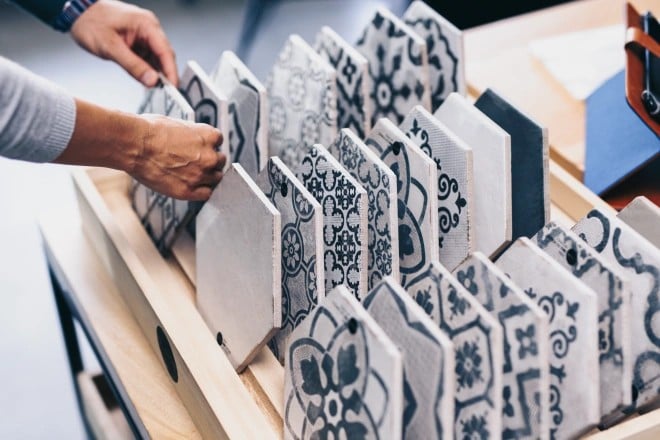
Porcelain: Porcelain is a type of ceramic floor tile that is more durable due to its composition. These floor tiles are made from a specially refined clay that is kiln-fired, and they can either retain their natural appearance or be made to look like other materials such as stone, concrete, or wood.
Porcelain floor tiles are also colored all the way through, while ceramic floor tiles only have a glazed layer of color on top. Because of their high density, porcelain floor tiles are more resistant to chipping and less likely to absorb moisture which makes them more durable.
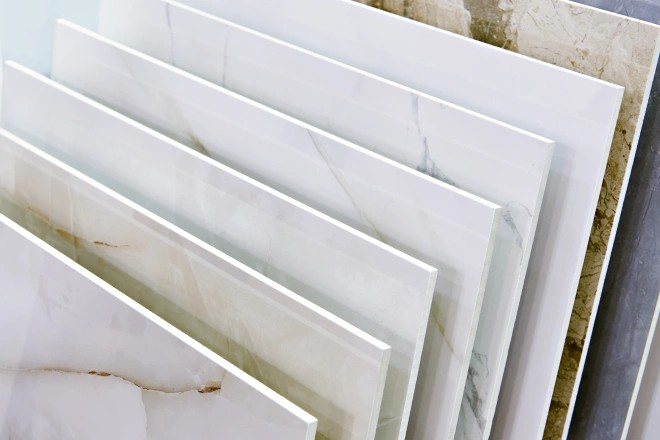
The Porcelain Enamel Institute (PEI) has developed a rating system that indicates the strength and durability of tile. PEI rates tiles from grades 1 to 5, with 1 being the least durable and 5 being the strongest.
It's recommended to select a tile with a PEI rating of 3 or higher for bathroom floor tile since they will be more resistant to moisture, scratches, and stains, making them better suited for frequently used areas like bathrooms.
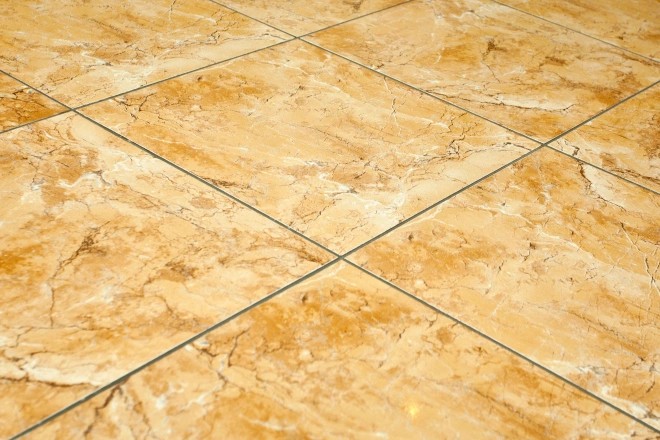
Ceramic and porcelain tiles can also be glazed or unglazed. A glaze is a thin layer of material that is applied to a ceramic or porcelain tile after its initial firing. The tile is then fired again in order to set the glaze and give the tile a protective layer.
Unglazed tiles are usually thicker than glazed tiles and tend to have an "earthier" color palette. They are more scratch-resistant but are more vulnerable to stains than glazed tiles.
Glazed tiles are more commonly used for residential remodeling projects since they offer more color and design options. They are stain resistant because of the glaze, but scratches may be more visible due to the glaze (especially high-gloss glazes).
In short, glazed tiles have a smooth glossy finish with unlimited design options, while unglazed tiles are usually subdued solid (or speckled) colors with no glossy finish.
Now that we've covered the differences between ceramic and porcelain tiles let's take a closer look at the pros and cons of each type of tile, as well as the pros and cons of stone flooring.
.webp?width=660&height=439&name=A%20contemporary%20bathroom%20design%20featuring%20a%20tiled%20floor%20(1).webp)
Ceramic tile is a budget-friendly clay-based tile that is less durable than porcelain tile. Here are the biggest advantages and drawbacks of using ceramic tile as your bathroom flooring material.

Porcelain tile is a very hard type of ceramic tile made from finer, denser clay than standard ceramic tile. Here are the biggest advantages and drawbacks of using porcelain tile for your flooring material.
.webp?width=660&height=440&name=A%20tiled%20bathroom%20floor%20and%20a%20glass%20enclosed%20shower%20visible%20in%20the%20foreground%20(1).webp)
There are many different types of stone tile, including marble, granite, limestone, travertine, and slate. Here are the biggest advantages and drawbacks of using stone for your flooring.
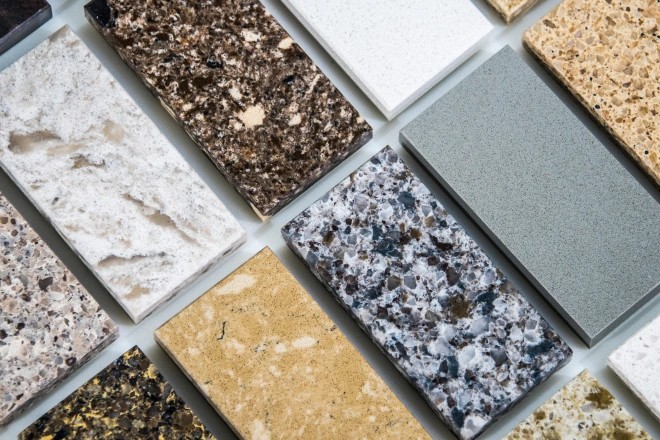
The most popular types of stone used for bathroom floors include granite, slate, marble, limestone, and travertine--each offering its own unique characteristics and benefits depending on what type of look and feel you're trying to achieve with your space.
Granite is an igneous rock, which means it formed from molten rock that cooled and hardened over time. It is an extremely hard and durable material. However, like most stone materials, it does require sealing in order to help prevent staining.
Slate is a type of metamorphic rock that was originally formed from sedimentary rock subjected to extreme heat and compression. Similar to granite, slate is extremely hard and durable.
Marble, limestone, and travertine are sedimentary rocks, which means they formed due to the compression of fossil remains over millions of years. These types of stone are relatively soft and porous, so they will require occasional sealing and gentler cleaners than ceramic or porcelain tiles. They are ideal if you are trying to achieve a luxurious and elegant look in your bathroom.
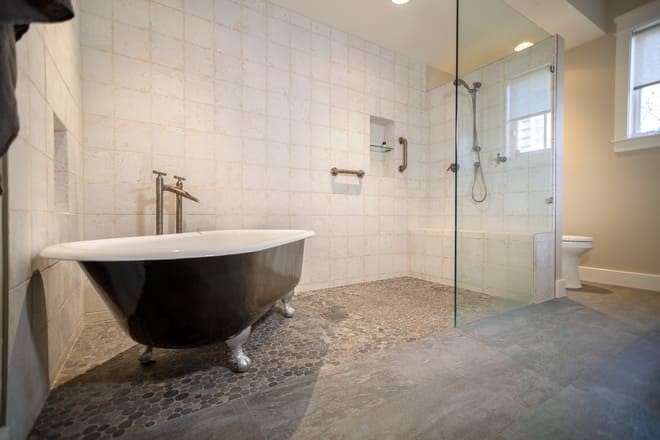
If you're looking for high-end style coupled with unmatched durability, then stone might be just what you need. Not only does stone offer superior longevity compared with other types of flooring materials but its unique natural patterns and colors provide an unparalleled level of elegance and sophistication that's sure to make any bathroom stand out from the crowd.

If low cost and good looks are important factors, then either porcelain or ceramic tile might be just what you need. Both offer excellent value when compared with other types of flooring materials while still providing plenty of options when it comes to color and style selection.
So no matter what design scheme you're going for, there will likely be something available that suits your tastes perfectly. Please just be aware of the PEI rating for the tile you select to make sure it will work well in your bathroom.
Congratulations, you now have a better understanding of your stone and ceramic/porcelain floor tiles options for bathrooms! It can be an overwhelming process, but with the right information at hand, you're well on your way to selecting the right tile product for your home. If you're ready to start the process, be sure to check out our guide to bathroom remodeling, which covers everything from the planning stages to the execution.
Ultimately deciding whether stone or ceramic tile is right for your bathroom floor depends on several factors, including budget constraints, desired look and feel, maintenance requirements, and overall lifestyle preferences. If you have any additional questions about your options or if you're ready to start planning your next remodeling project, please feel free to fill out our contact form, and we'll be in touch shortly.

Key Points Optimizing your kitchen layout enhances both functionality and style, catering to the multifaceted uses of modern kitchens, from cooking...

Key Points Open-concept kitchens enhance social interaction, natural light, and flexibility, redefining living experiences by merging kitchen,...
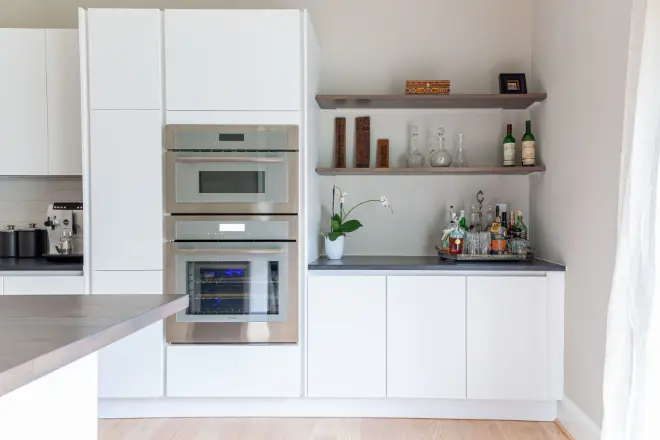
A Fresh Spin on Kitchen Updates Have you ever found yourself staring at your kitchen appliances, wondering if it's time for an upgrade? Or maybe...
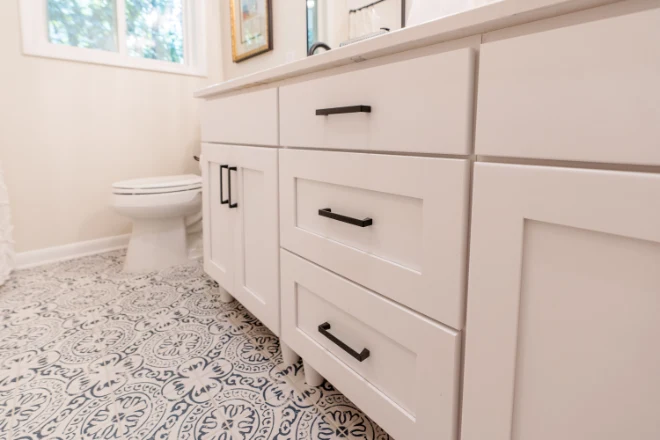
11 min read
Dive into Atlanta's Flooring Trends Ever stepped into a bathroom and felt the cold, unwelcoming touch of the floor on your bare feet? Or perhaps...
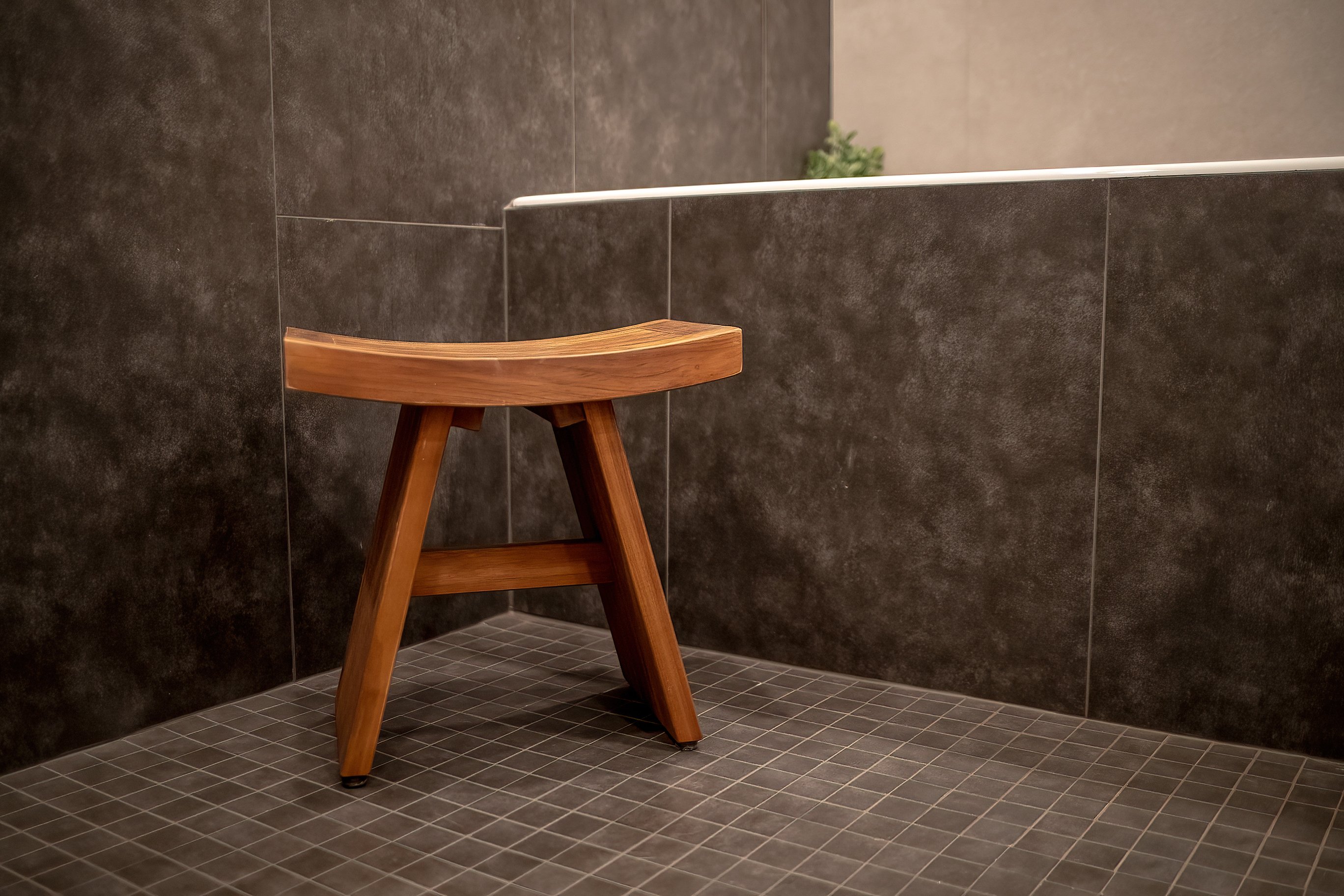
11 min read
Are you dreaming of a bathroom renovation but unsure about the cost of tiles? Do the numerous tile options and their varying prices make you feel...
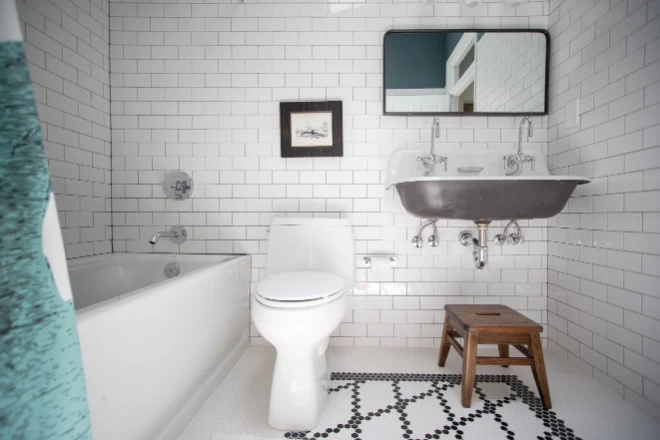
11 min read
Unraveling the Best for Your Bathroom: Vinyl vs. Ceramic Ever stood on a cold bathroom floor in the middle of winter, wishing for a warmer touch...